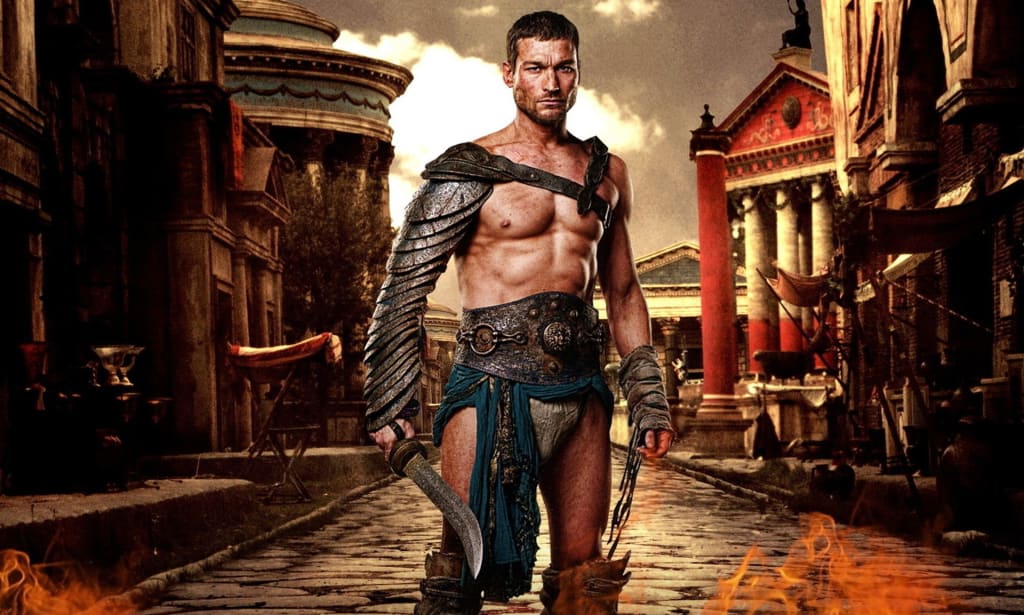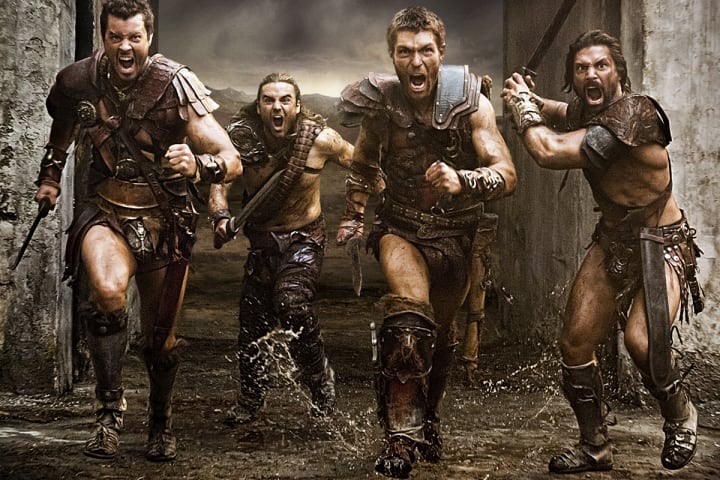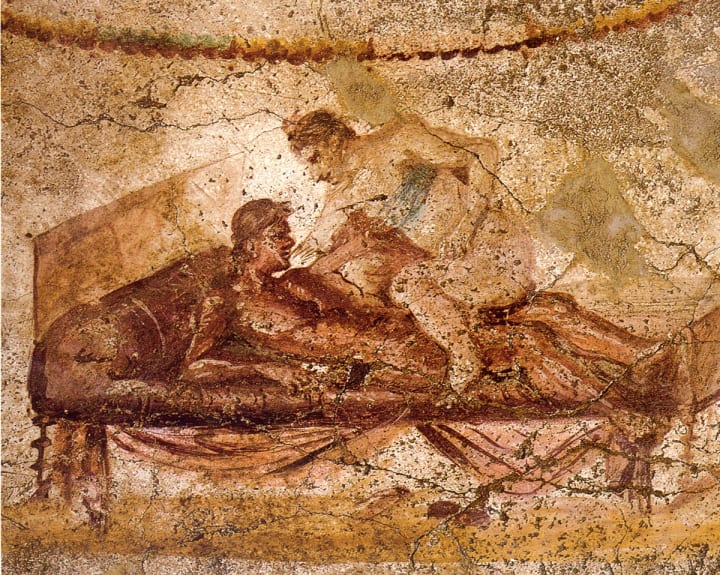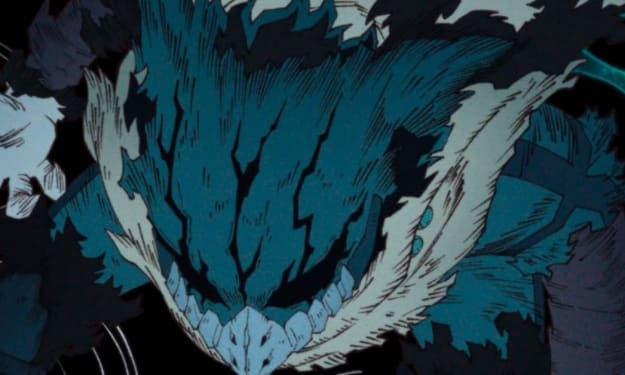Modern America and Sex In Spartacus
Modern America's obsession with sex rivals that of Spartacus' Ancient Rome.

Spartacus was an American television series produced in New Zealand, which premiered on Starz on January 22, 2010 and ended on April 12, 2013 after the third season. The show was inspired by the figure of Spartacus, an enslaved Thracian who became a gladiator in the city of Capua, and went down in history for having led a slave rebellion against the Roman Republic between 73 and 71 B.C. Starz focused the structure of the show on the dark events that took place during Spartacus' early life.
Spartacus Reborn
The basic premise is as follows: The story begins with the participation of an unknown Thracian on a campaign against the Getae, a Dacian tribe, under the command of the legatus Claudius Glaber. In 72-71 B.C., the Roman general Terentius Varro Lucullus, who was proconsul of the Roman province of Macedonia, marched against the Getae, allies of Mithridates VI of Pontus, an enemy of Rome. The Getae frequently attacked the Thracians' south lands, so Glaber persuades them to enlist in the Romans' service as auxiliaries. Glaber, influenced by his wife Ilithyia to seek a greater glory, decides to break the campaign against the Getae in order to confront Mithridates' forces in Asia Minor. Then, the Thracian with no name, preferring to protect his homeland as promised, feels betrayed and leads a mutiny against Glaber.
But when he returns to his village, he finds it in flames. He then manages to escape with his wife, Sura, but they are captured by a vengeful Glaber the next day, and the Thracian is sentenced to die in the arena of Gladiators, while Sura is condemned to slavery. Season 2 was called Spartacus: Vengeance, and was aired between January 27 and March 30, 2012. It was comprised of 10 episodes. Unfortunately, lead actor Andy Whitfield died due to non-Hodgkin's lymphoma, so the main character role was taken over by Liam McIntyre, who continued playing Spartacus until the end of the show. This season, the story is set in a time immediately following the events of the first season, and chronicles the early stages of the slave uprising led by Spartacus.

Photo via Collider
War of the Damned
Season 3 was the show’s final season, titled Spartacus: War of the Damned, and aired between January 25 and April 12, 2013. It consisted of 10 episodes and featured the addition of new actors Simon Merrells, who played Marcus Licinius Crassus, an enemy of Spartacus; and Todd Lasance, who played future Roman Emperor Gaius Julius Caesar. The main storyline was about the clashes between the already consolidated army of rebel slaves led by Spartacus, and the Roman legions, until the end of the conflict. The program was oriented towards an adult audience, as it contained graphic violence, adult language, and explicit sex scenes. In other words, we’re watching something so violent and sex obsessed, it might have actually done well in Ancient Rome in terms of storytelling because sex has gone mainstream in modern America as much as it had in Rome.
Starz’s Spartacus was one of the earlier shows to fill our home screens with violence and sexuality that rivaled the movies. What is intriguing about the portrayal of sex in Spartacus is how it mimics the openness about sex and sexuality that was present in Ancient Rome. It tells the story of a time where sex was openly viewed as something fun and natural, as opposed to the taboo that it has become in today’s society. However, the show’s popularity, along with the number of producers who are following suit, indicates that perhaps society is moving back towards and Ancient Rome-like thought process once again. In a world riddled with body image concerns and dress code protests, going back to appreciating the human body and its actions as natural and beautiful may be exactly what modern America needs. Furthermore, Romans were very accepting of all sexualities, an issue that has become rife with conflict and discrimination today. Perhaps taking a leaf out of Spartacus' book wouldn’t be a bad thing.

Photo via STUDYBLUE
Sexuality of Gladiators
However, it is important to note that Spartacus does not portray sex as we know it in most mainstream media platforms. While we are used to seeing sex that is perfect and pristine, full of love and/or lust, Spartacus takes a much more raw and often realistic view of the act, much like the violence that is featured as well when Spartacus is fighting in the pits hoping to die. What passes for sexuality on normal TV tends to come in one of two varieties.
- The dreamy, butterfly flapping, romanticization of sex, which holds very little resemblance to real life.
- Sexually charged hotness that's all smoke but no fire. Meaning, it's just sex for sex. Nothing comes of it.
Spartacus gets deep with how sex really plays into human drama, though. Like Gannicus and Mellita, who went around behind her husband’s back and ended up choking on her own blood just as she got into bed with her lover.
One of the strangest things about sex in Spartacus is just how common it is to have other people around. The wealthy, in particular, don't think anything of their slaves seeing them go at it. Illythia and Claudius hardly seem to talk except when taking a bath while servants come in and out of the waters with them. The wealthy also like to make their slaves go to town and watch. There's really hardly any widespread parallel for this in our culture. Maybe it reflects a healthier lack of self-consciousness? This one could undermine the previous point, but it certainly doesn’t seem to in the cases presented in the show. It appears that, while sex has consequences on Spartacus, having to worry about what you look like or what others will think of you is not one of them. One consequence that sex does have that this show doesn't really reflect: Sometimes you are at your absolute least hot when you're having sex. Coitus is a time of embarrassing moves. Nothing like that seems to happen on Spartacus, although there is something else you might have to worry about.
Glory in Love and War
Sure you might die when Tiberius leads an attack on Spartacus. Spartacus is a notoriously gory show, and the violence doesn't take a break when the scenes get "tender." In fact, in the world of Spartacus, it's never really tender. Hell, Kore, a slave, tries to comfort Tiberius after his defeat, but he ends up raping her instead. That should cure folks of overly romantic notions. Orgy fan Gaia seduces Titus to help out a friend during a big group sex party. Titus decides to kill her when he finishes. If that doesn't disabuse people of the soft feelings that sex engenders, what can? In a similarly disturbing way, in the very first episode Spartacus is naked and does it with his enemy, Illythia. Rumor has it that this scene took 12 hours to shoot. Anyway, the lovers are tricked into coming together and then, once they finished, their true identities are revealed.
Spartacus tells the tale of an enslaved Thracian who became a gladiator and led a slave rebellion against the Roman Republic. After being torn from his love and his homeland, Spartacus lives his life in the brutal world of the arena.
About the Creator
Stephen Hamilton
Definitive movie buff. Quickly realized that it was more financially prudent to write about film than trying to beg for millions of dollars to make his own.






Comments
There are no comments for this story
Be the first to respond and start the conversation.